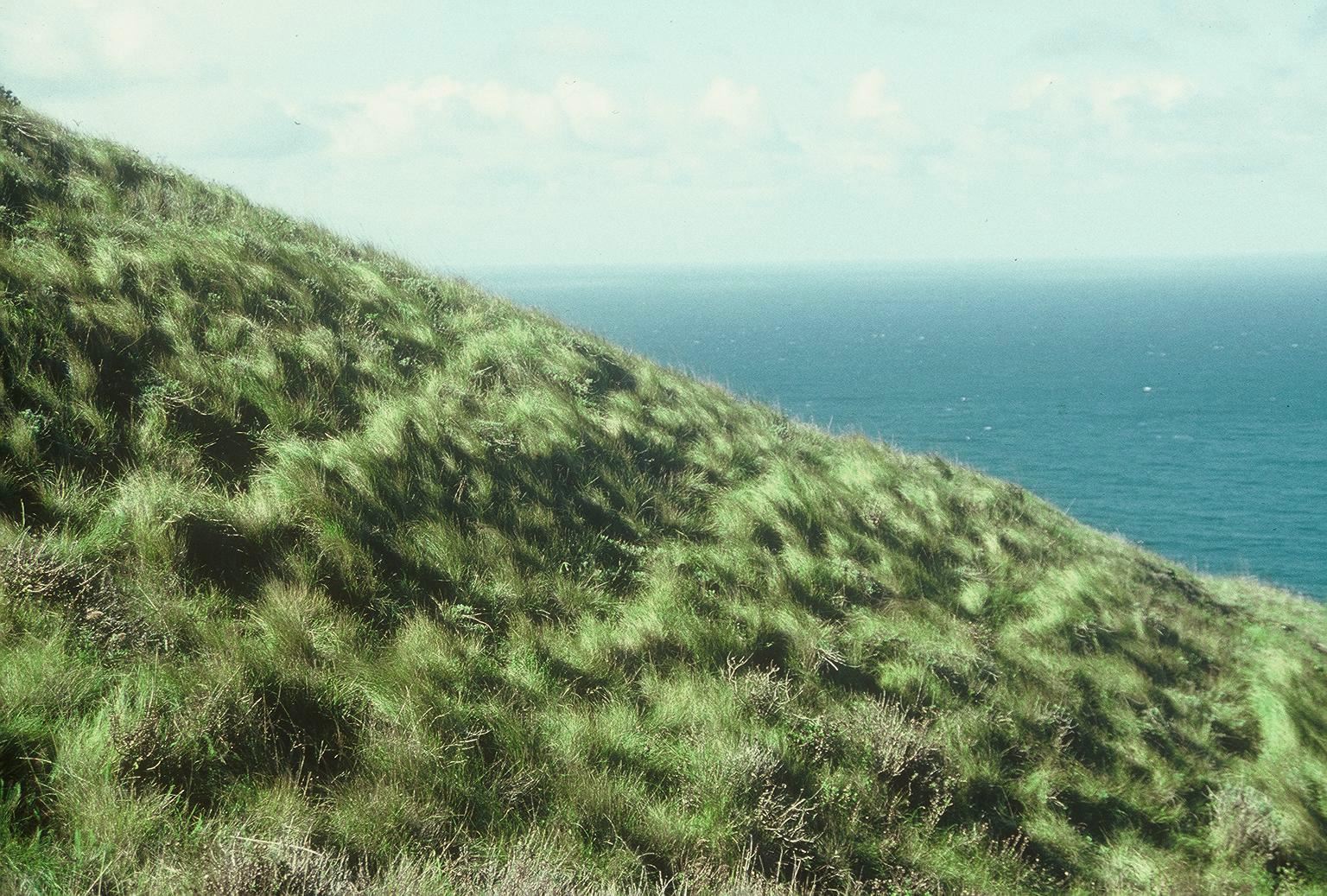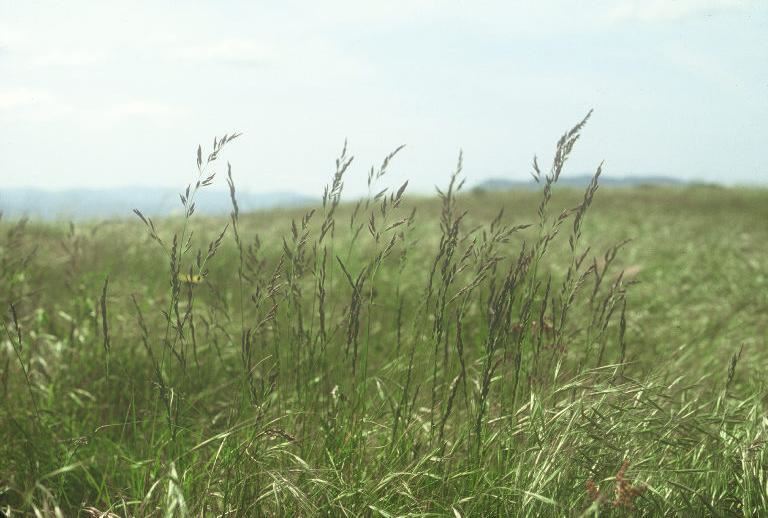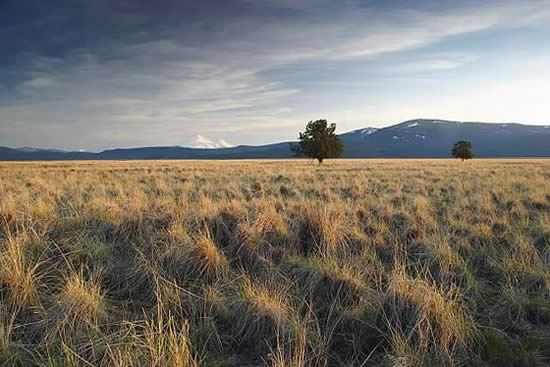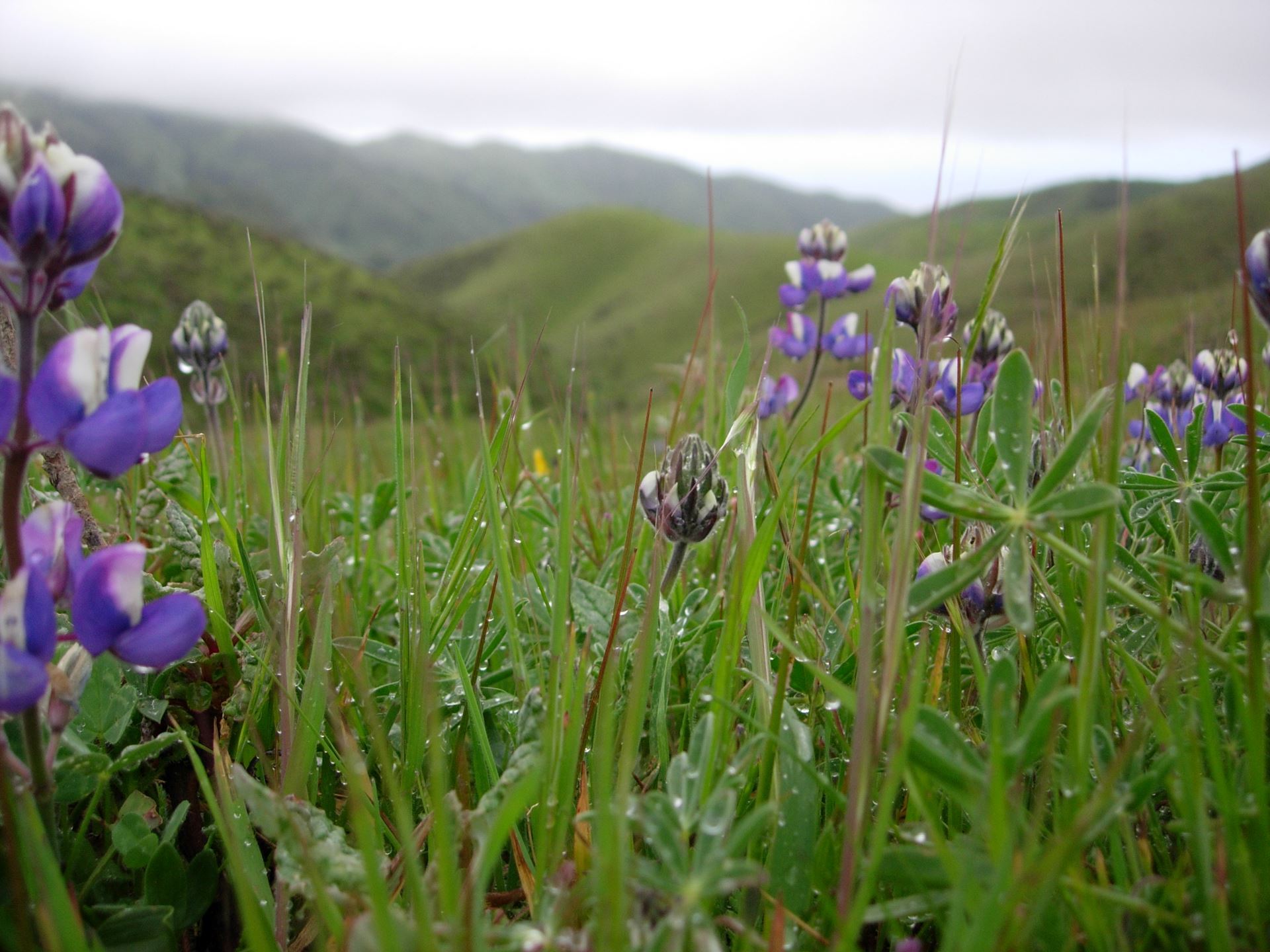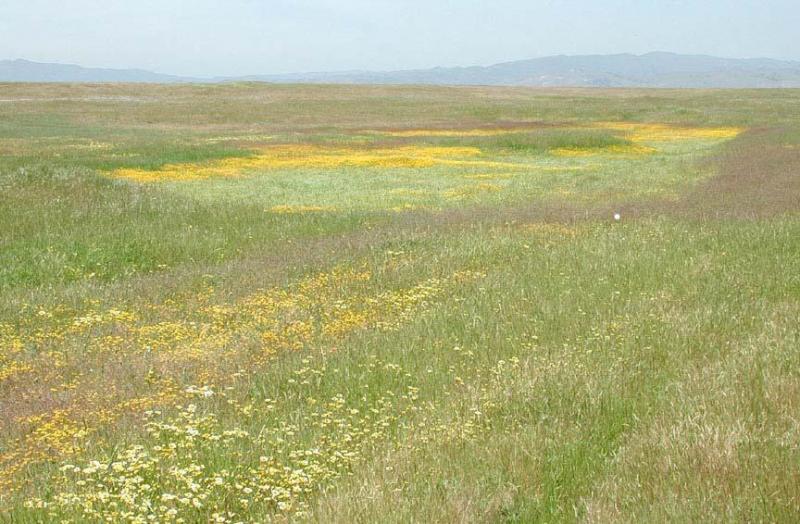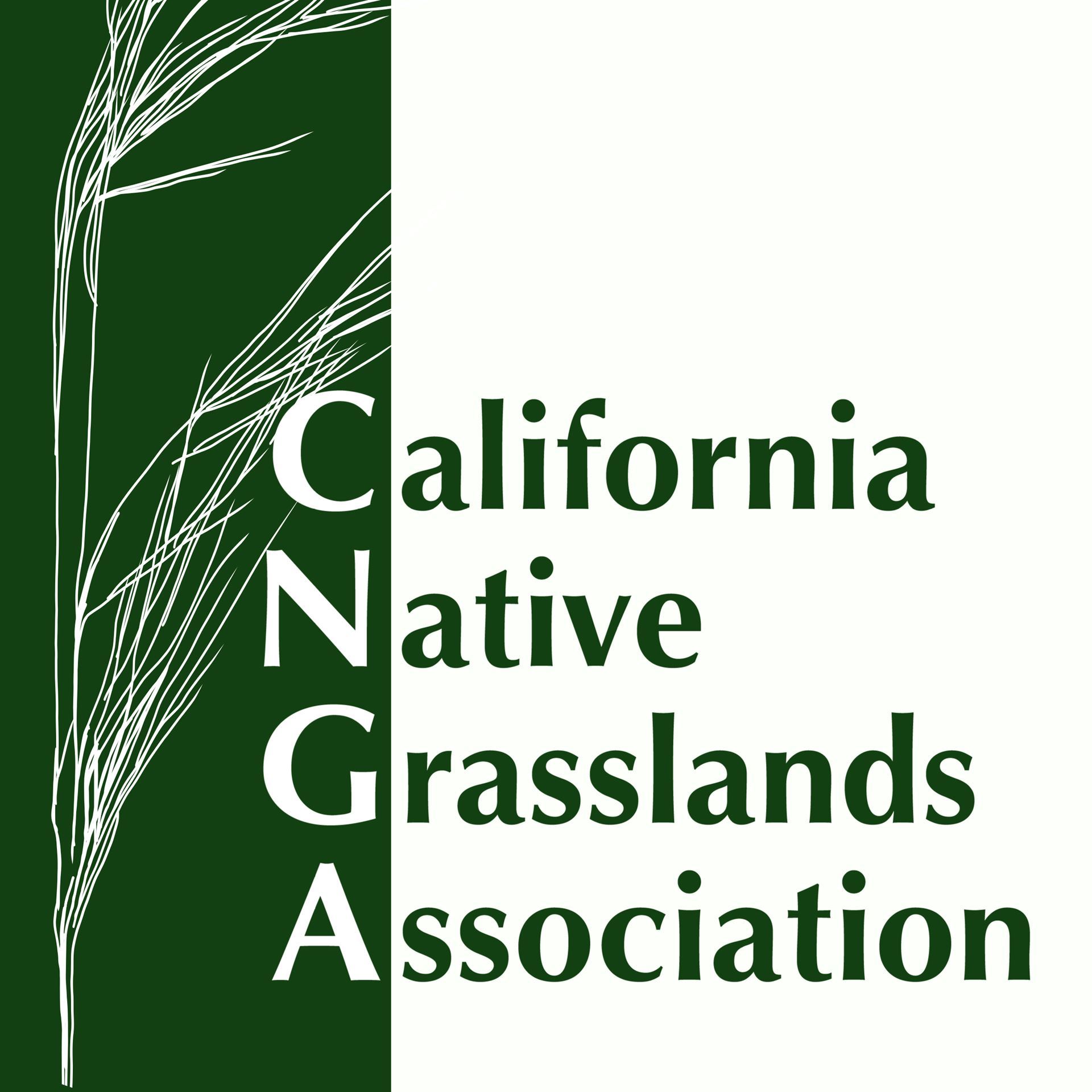
The Only Organization Working Exclusively to Conserve and Restore
California's Native Grasslands
Visiting California Grasslands
California's native grasslands are incredibly diverse and biologically important ecosystems. Yet grasslands remain one of the most under-protected of California's vegetation types, and native grasslands have undergone the greatest percentage loss of any habitat type in the state, including much-publicized losses in wetland and riparian systems. Access may be limited and conditions may have changed since these articles were published. Please check arrangements before you go. |
Red fescue at Big Sur. Photo: CNGA files |
Northern California
Alameda County
Brushy Peak Regional Preserve (Alameda County), by Michele Hammond, Grasslands Fall 2018
Butte County North Table Mountain Ecological Reserve - Spring wildflowers, waterfalls, lava outcrops, and a rare type of vernal pool, called Northern Basalt Flow Vernal Pools, CDFW Lands Pass required. Follow link for more information. |
Contra Costa County
|
Original/early photograph of the “Molate Fescue” (Festuca rubra) along the Potrero San Pablo summit. Photo: David Amme, Published in Grasslands Summer 2013 |
Colusa and Lake Counties
Walker Ridge (Colusa & Lake Counties) by Andrew Fulks, Grasslands Spring 2013
Lassen County
Drakesbad Meadow (Lassen County), by Kendra Mosely, Calflora "Great Places" updated 2020
Marin County
Azalea Hill/ Pine Mountain, (Marin County), by Andrea Williams, Grasslands Summer 2018
Jepson Prairie Preserve (Solano County), by Virginia Boucher, Grasslands Winter 2017
Hell's Half Acre, Lava Cap Wildflower Field (Nevada County), by Karen Callahan and Jennifer Buck-Diaz, Grasslands Winter 2016.
Ridgecrest Boulevard, Mount Tamalpais (Marin County), by Andrea Williams, Grasslands Fall 2015
Mendocino County
Low Gap Park, Ukiah (Mendocino County), by Emily Allen, Grasslands Spring 2018
Siskiyou County
Visiting the Grasslands (from US Forest Service Website) There are no designated recreation sites within Butte Valley National Grassland. However, a pleasant drive is available through the grassland. From Macdoel, go north 5.1 miles to Meiss Lake Sam's Neck Road. Follow that road west 4.9 miles, through the Grassland, to Indian Point Road. Go north along Indian Point Road for 4.6 miles, and admire the low rock bluffs on the west side. The sharp turn at Indian Point is a scenic spot to park and see the windmill. At Richardson Road, go east 5.2 miles back to Route 97, one mile south of Dorris. If coming from Dorris, simply take Richardson Road west to Indian Point Road, go south, and then return east on Meiss Lake Sam's Neck Road. See website for more details. For information on Butte Valley National Grassland, contact or visit the Goosenest Ranger District at 37805 Highway 97, Macdoel, CA 96058. Phone (530) 398-4391 |
Butte Valley National Grassland, U.S. National Forest Service |
Sonoma County Watch Pepperwood Preserve's webinar, "California Grasslands - The Forest Beneath Our Feet" Pepperwood FoundationExplore the complexity and beauty of California's grassland ecosystems with Pepperwood's Preserve Ecologist, Michelle Halbur. Learn how Pepperwood is managing our grasslands to support native biodiversity, healthy soils and water quality. Discover the impacts our grasslands have experienced from recent historic climate events: drought, rain, and wildfires. |
Yolo County City of Davis South Fork Preserve, by Christopher Gardner, Grasslands Winter 2019. Vol 29(1):8. |
Central California
Monterey County
Photo: Palo Corona Regional Park. Photo: Meghan Skaer, 2013 |
San Luis Obispo County
The Shifting Mosaic of Carrizo Plain (San Luis Obispo County), by Jennifer Buck-Diaz,Grasslands Spring 2015
Carrizo Plains National Monument, San Luis Obispo County
Carrizo Plain National Monument Visitor Center, 17495 Soda Lake Road, California Valley, CA 93453
Phone: 805-475-2131
Information Line: 805-475-2035
Email: BLM_CA_Web_BK@blm.go
Conservation filmmakers Kyle Lancaster and Joe Flannery set up wildlife cameras to explore the Carrizo Plain National Monument’s desert grassland ecosystem.
Video: California Grasslands, Part 1: Elk and Pronghorn
First frames we hear tweets of western meadowlark. Tule elk were reintroduced from a pair of tule elk rediscovered in a tule marsh around 1876 in southern San Juaquin Valley. Pronghorn, closest relative is the giraffe! North America’s fastest animal. Striking images of the San Andreas Fault.
Video: California Grasslands, Part 2: Grassland Biodiversity
Films and discussion of American badgers, giant kangaroo rat, grasshopper sparrow, ravens, and western meadowlarks. The giant kangaroo rats are a keystone species and “the farmer[s] of southern California grasslands,” tending the soil and the plants.
Video: California Grasslands, Part 3: Trail of the Kit Fox
While on the trail of the elusive San Juaquin kit fox is the “mascot of endangered grassland habitat in California,” they come across many things including birds nesting and resting in rock face cavities: swallows ravens, and barn owls. Kit foxes are the smallest canid in North America, mate for life, have large ears that help with hunting and cooling. They are threatened by coyotes (more coyotes now without wolf predators), rodenticides, and dwindling habitat.
Southern California
Kern County
Tejon Ranch, Kern County Hikes are led by the Tejon Ranch Conservancy
Los Angeles County
Santa Monica Mountains National Recreation Area, Los Angeles County
Arroyo Sequit - Accessed from Mulholland Highway, Arroyo Sequit features an intermittent stream, a loop trail, and meadows that are blanketed with wildflowers in the Spring. Arroyo Sequit is a small site that may be easy to overlook, but provides for intimate, relaxing strolls. It is also a favorite among evening stargazers, but contact the National Park Service to find out about accessing the site after hours.
Directions: 34138 Mulholland Highway, Malibu, CA, 90265 GPS Coordinates: N 34.0891 W -118.8908 Take Pacific Coast Highway to Mulholland Highway. Turn inland to Mulholland Highway and go 6 miles to park entrance on right side of road.
Riverside County
The Santa Rosa Plateau Ecological Reserve (Riverside County), by Zachary Principe,Grasslands Winter 2013
Links to Grassland Parks and Spaces
Access may be limited so be sure to check arrangements before you go.
California Department of Fish & Wildlife Ecological Reserves and Wildlife Areas in California includes many grassland areas.
"Grasslands are not a drive-by landscape. Unless you get out in them and observe, you will never understand how diverse they are and how much is going on above and below the soil surface. From microbes to vertebrates, there is a big reward when you take the time to explore. That’s what I love—the reward of finding another mystery every time I look. "--Jeff Wilcox, CNGA Member.
